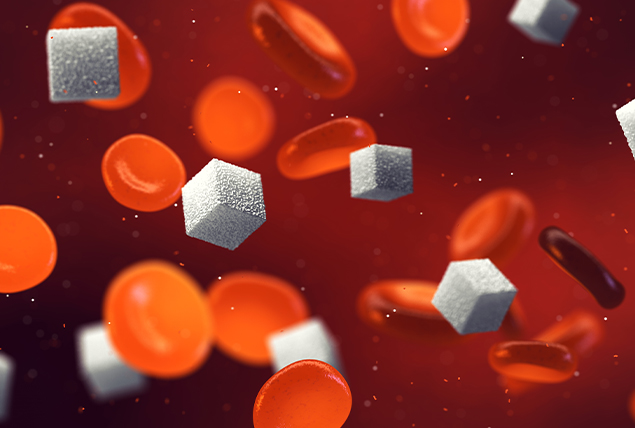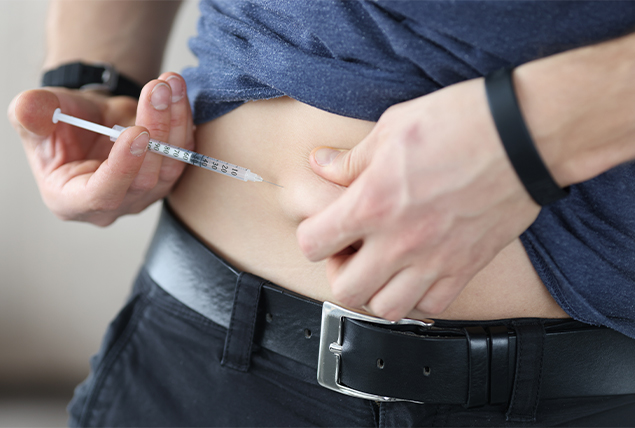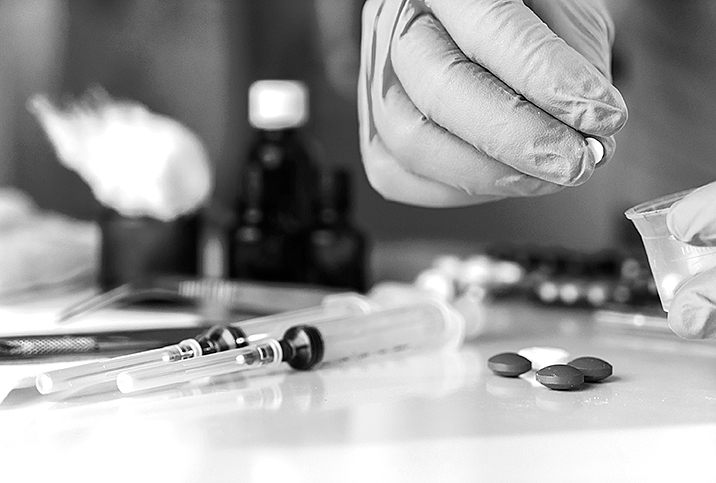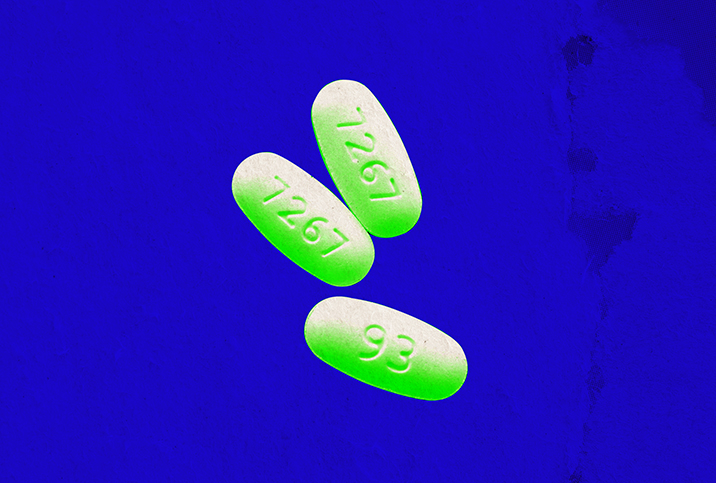Seeking Help for Hyperglycemia
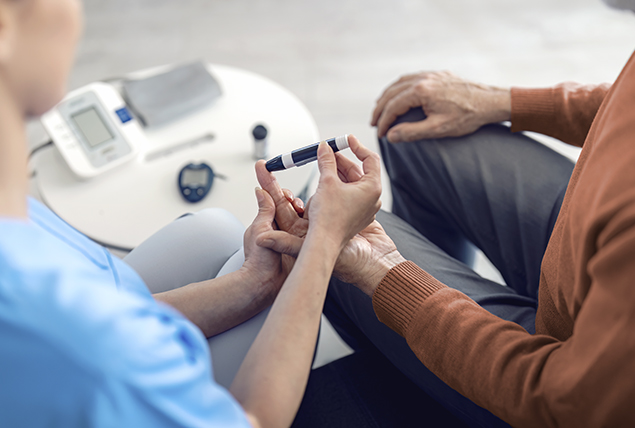
Key Points
- If left untreated, chronic hyperglycemia may cause serious side effects such as cardiovascular disease, kidney damage, vision problems and nerve damage.
- Pregnancy is high-risk for patients with diabetes
- Thirty minutes of walking five times a week, and losing about 7 percent of your body weight, can help prevent diabetes.
High blood sugar, or hyperglycemia can seriously impact people with diabetes. When you have diabetes, your body can't use insulin properly or doesn't produce enough of it. As a result, too much glucose is present in your blood but does not enter your cells.
Hyperglycemia can be dangerous.
Understanding postprandial meaning
The postprandial period, fed state or the point of time following a meal, deals with the process of your body taking in nutrients. You may have heard of postprandial sleepiness in connection with the desire to take a nap after eating a big Thanksgiving meal.
Preprandial relates to the period before eating a meal, or before achieving a fed state.
People with postprandial hyperglycemia experience hyperglycemic spikes.
What are the medications used in treating hyperglycemia?
People with hyperglycemia postprandial meaning insulin difficulties after eating, may require preprandial insulin or regular insulin and long-working insulin mixtures as far as 20 to 40 minutes before a meal, a 2003 report shared.
Possible treatments for hyperglycemia could include the following medications (depending on the cause of the condition):
- Insulin. This is typically the first line of treatment for hyperglycemia in people with Type 1 diabetes. Insulin may occasionally be used to treat patients with Type 2 diabetes.
- Glucose monitoring. People with diabetes should check their blood glucose levels regularly.
- Lifestyle modifications. By engaging in regular exercise, eating a healthy diet and maintaining a healthy weight, people with diabetes can lower their chance of developing hyperglycemia.
The following glucose-lowering medications are often used:
- Metformin
- GLP-1 agonists (e.g, Ozempic and Byetta)
- DPP-4 inhibitors (e.g., Januvia and Tradjenta)
- SGLT2 inhibitors (e.g., Invokana and Farxiga)
"Metformin has generally been the first-line treatment," said Paul Pavlov, M.D., a family doctor at North Bay Family Medical Clinic in Biloxi, Mississippi.
"Now medicines like Farxiga or Januvia are becoming the first line because they give kidney and heart protection. The problem with them is they're expensive," Pavlov said.
Once-a-week shots, including Trulicity and Ozempic, are popular options.
"Their main side effect is nausea," Pavlov said. "Metformin's main side [effects are] gassiness and diarrhea."
Side effects of the sulfonylureas, such as glipizide and amaryl, include hypoglycemia (low blood sugar) and weight gain.
"They all have minor side effects, but generally, they're well-tolerated medicines," Pavlov said.
Recommended
- The Facts About Hyperglycemia: Find out how hyperglycemia affects your sexual health.
- What Is Hyperglycemia and How Do You Know If You Have It?: What happens when you have high blood sugar, especially if you're hyperglycemic and pregnant?
- How Often Are Breast Biopsies Cancer?: Most results are benign, but here's what to expect during and after the procedure.
What happens if hyperglycemia goes undiagnosed?
Generally speaking, hyperglycemia that occurs infrequently does not result in long-term complications. However, if left untreated, chronic hyperglycemia may cause serious side effects like cardiovascular disease, kidney damage, vision problems and nerve damage.
"Uncontrolled diabetes can lead to kidney damage and decreased circulation in your feet. You lose toes and feet and legs and things like that," Pavlov said. "It makes you more prone to heart disease and more prone to strokes. It can affect your eyes. It virtually affects every organ in your body."
If hyperglycemia isn't treated, a condition called ketoacidosis (diabetic coma) could occur.
Without insulin, your body breaks down fats for fuel since it cannot use glucose as fuel and ketones are waste products created when your body breaks down fats. Your body will attempt to eliminate excess ketones through urine because it cannot handle them.
Unfortunately, because the body is unable to eliminate all of the ketones, they accumulate in your blood and can cause ketoacidosis.
Symptoms of ketoacidosis include:
- Breath that smells fruity
- Dry mouth
- Nausea
- Shortness of breath
- Vomiting
People with hyperglycemia can reduce their risk of developing major consequences if they take the proper medication, live a healthy lifestyle and have their blood glucose levels regularly monitored.
Hyperglycemia and sexual health
Sexual dysfunction for diabetic women is more common than for women who do not have diabetes. Symptoms of high blood sugar levels include decreased vaginal lubrication that can lead to pain during sex and the inability to orgasm.
Also, the use of diabetes devices—such as glucose monitors and insulin pumps—could negatively affect your self-image. The inconvenience of the disease might impact the spontaneity of sex.
Higher rates of depression and anxiety in men and women with diabetes can lead to low libido or sexual desire. Both men and women experience low sexual desire as a result of poorly controlled diabetes.
Hyperglycemia and ED
Hyperglycemia and erectile dysfunction (ED) in men, the inability to maintain an erection rigid enough for sexual intercourse, is common.
"Long-standing high blood sugars can affect sexual function in men in two different ways," said Nestoras Nicolas Mathioudakis, M.D., M.H.S., associate professor of medicine and co-medical director of the Diabetes Prevention & Education Program at the Johns Hopkins School of Medicine, in Lutherville, Maryland.
"Most commonly, it's causing nerve damage that affects the signal from the brain to the penis for arousal," he said. "That's what's called autonomic neuropathy. And that's usually people whose AIC levels are 8, 9 or 10 percent for a few years without adequate treatment."
The second main complication is vascular disease. High blood sugars affect the circulation in the legs and all the arteries, including the penis.
"It can affect blood flow to get an erection," Mathioudakis said. "That type of complication may be more responsive to treatment with drugs like Viagra [sildenafil], whereas the neuropathy may not be."
"When I'm meeting somebody for the first time with diabetes, particularly a man, I'm talking about all the potential complications of which this is often a very important one. And maybe enough of a compelling reason to get people to get their sugars down," Mathioudakis finished.
Hyperglycemia and pregnancy
"Pregnancy is a very insulin-resistant state for women," Mathioudakis said.
"Many women, even if they don't have diabetes prior to pregnancy may start to have pre-diabetes range levels for blood sugar or actual diabetes, gestational diabetes, due to the effects of the pregnancy in response to their own insulin levels."
Mathioudakis noted that monitoring women's glucose levels very closely during pregnancy is important.
"If they have become diabetic, then we get appropriate treatment mainly to prevent their baby from being too large for the gestation and having complications related to delivery," he said.
Women who have diabetes before getting pregnant need to make sure that their diabetes is under good control before trying to conceive.
"Because poor blood sugar control early in pregnancy has been linked to early developmental abnormalities and higher miscarriage rate," Mathioudakis said. "There's sort of a preconception counseling that we focus on for people who have diabetes."
Diabetics have to "go on a strict regimen when they're pregnant," Pavlov said, since hyperglycemia in pregnant women can make for large gestational-age babies.
"Diabetes and pregnancy together are considered high risk. There are more miscarriages and stillbirths. The risks all go up," he said. "With good control of diabetes, there's no reason you can't have a happy successful pregnancy, but more complex care is required."
Prevention
One of the best ways to lower blood sugar is through exercise. However, you shouldn't exercise if you have ketoacidosis; instead, visit the emergency department. To be safe, especially if your glucose reading is 250 mg/dL or above, ask your healthcare provider to examine your urine for ketones.
Your body uses glucose as its main source of energy when you work out, which can help lower your blood sugar levels.
Regular exercise will lower your glucose levels and that can be measured by hemoglobin A1C, a blood test measuring the average level of glucose attached to hemoglobin in red blood cells for two to three months.
Determine which workouts are appropriate for you based on your goals and degree of fitness by consulting your doctor and then hiring a personal trainer.
"The thing you should do is lose weight and exercise," Bouldin said. "That is far more effective than Metformin at preventing the onset of diabetes."
Bouldin recommends moderate exercise at a frequency of at least 150 minutes per week.
"Thirty minutes of walking five times a week, and losing about 7 percent of your body weight, will prevent diabetes in the majority of cases," he said.
What are the warning signs of hyperglycemia?
"The thing that does the damage in diabetes seems to be the blood sugar," said Marshall J. Bouldin, M.D., the chief medical officer, vice chairman and co-founder of Vigilant Health in Ridgeland, Mississippi.
"The more that your sugar is in an abnormal range, the more your tissues don't work," Bouldin said.
Call 911 or seek immediate assistance from your doctor if:
- You exhibit symptoms of ketones in your urine.
- You have persistent diarrhea or vomiting, and you're unable to swallow any food or liquids.
- Your blood glucose levels remain above 240 milligrams per deciliter (mg/dL).
What are good resources for patients and caregivers?
For a deeper dive into hyperglycemia, several online websites offer a wealth of information and advice.
Here are some good places to start:
- American Diabetes Association
- Association of Diabetes Care & Education Specialists
- Diabetes Research Institute
- Endocrine Society
The bottom line
If you suspect you may have hyperglycemia or the onset of diabetes, speak to your healthcare provider to coordinate the best treatment options.
If you work to keep your blood sugar under control, you shouldn't have to worry about hyperglycemia. Knowing your diet and counting the total amounts of carbs in each meal is important, as is checking your blood sugar levels regularly.
Notify your doctor if you have multiple abnormal blood glucose readings.












